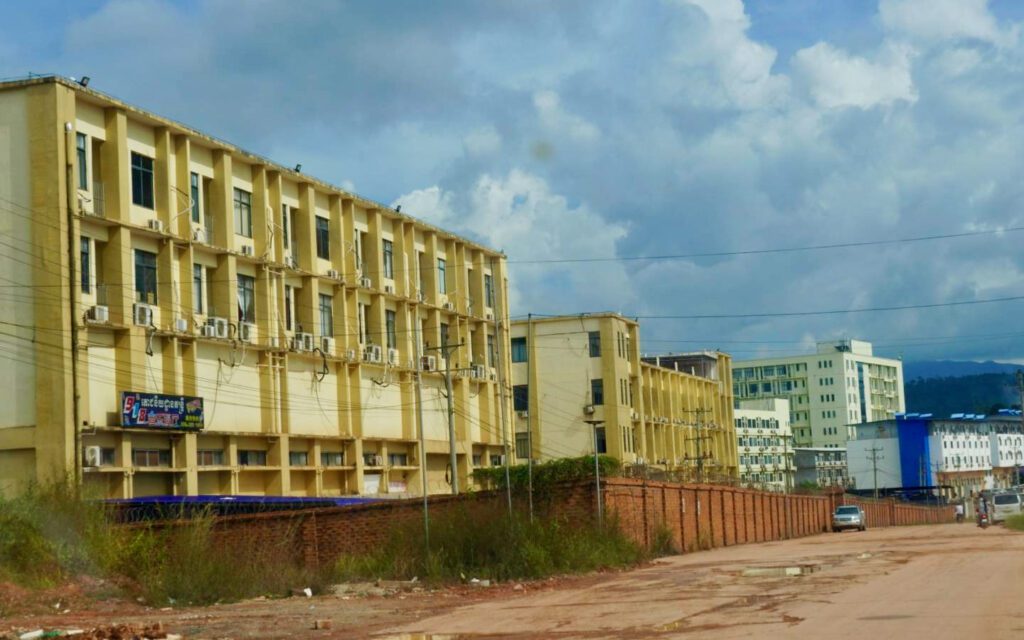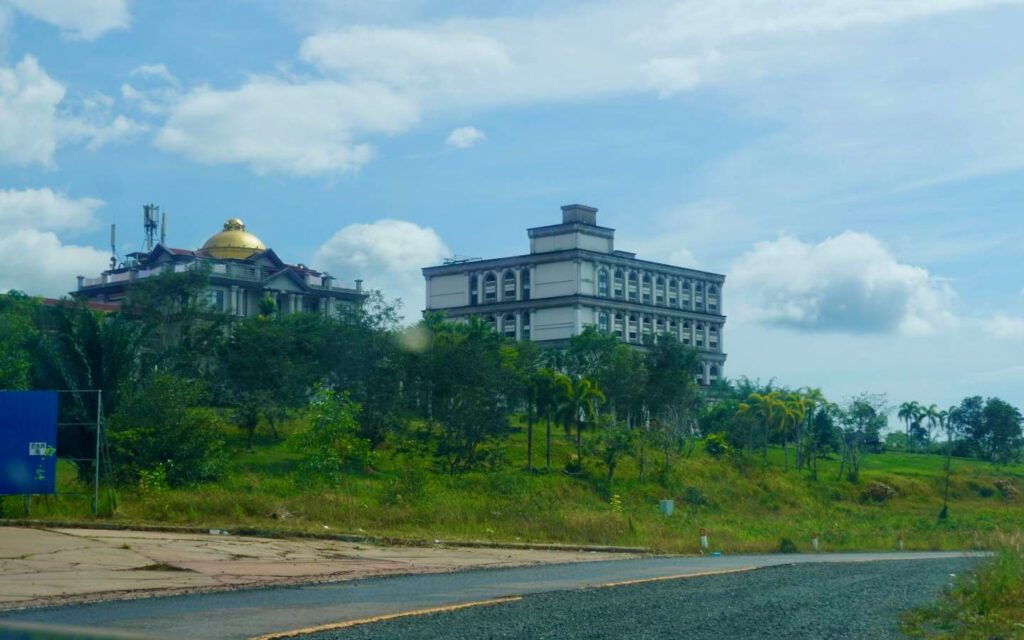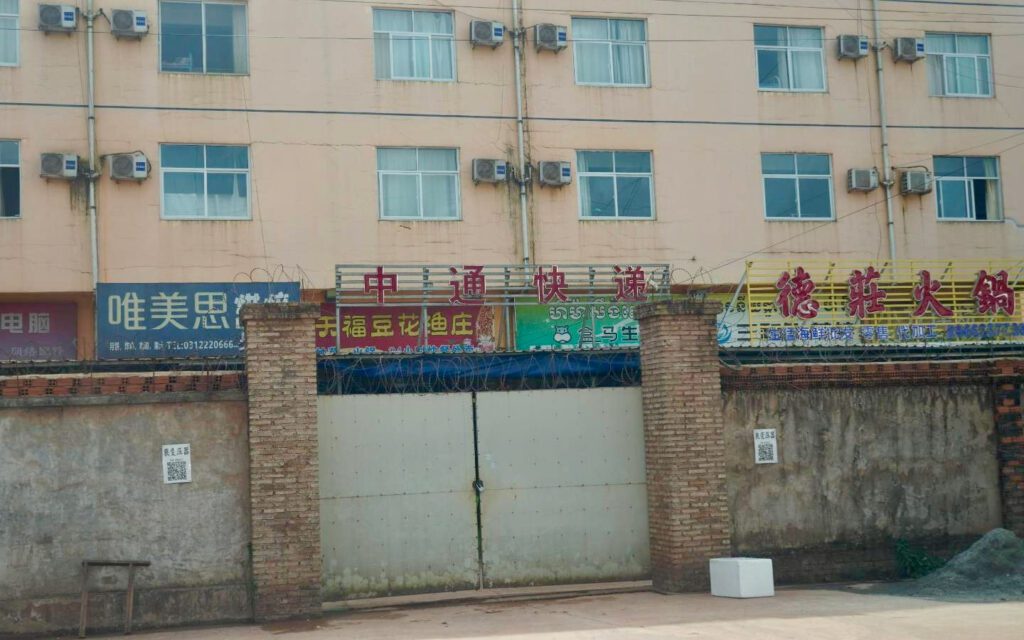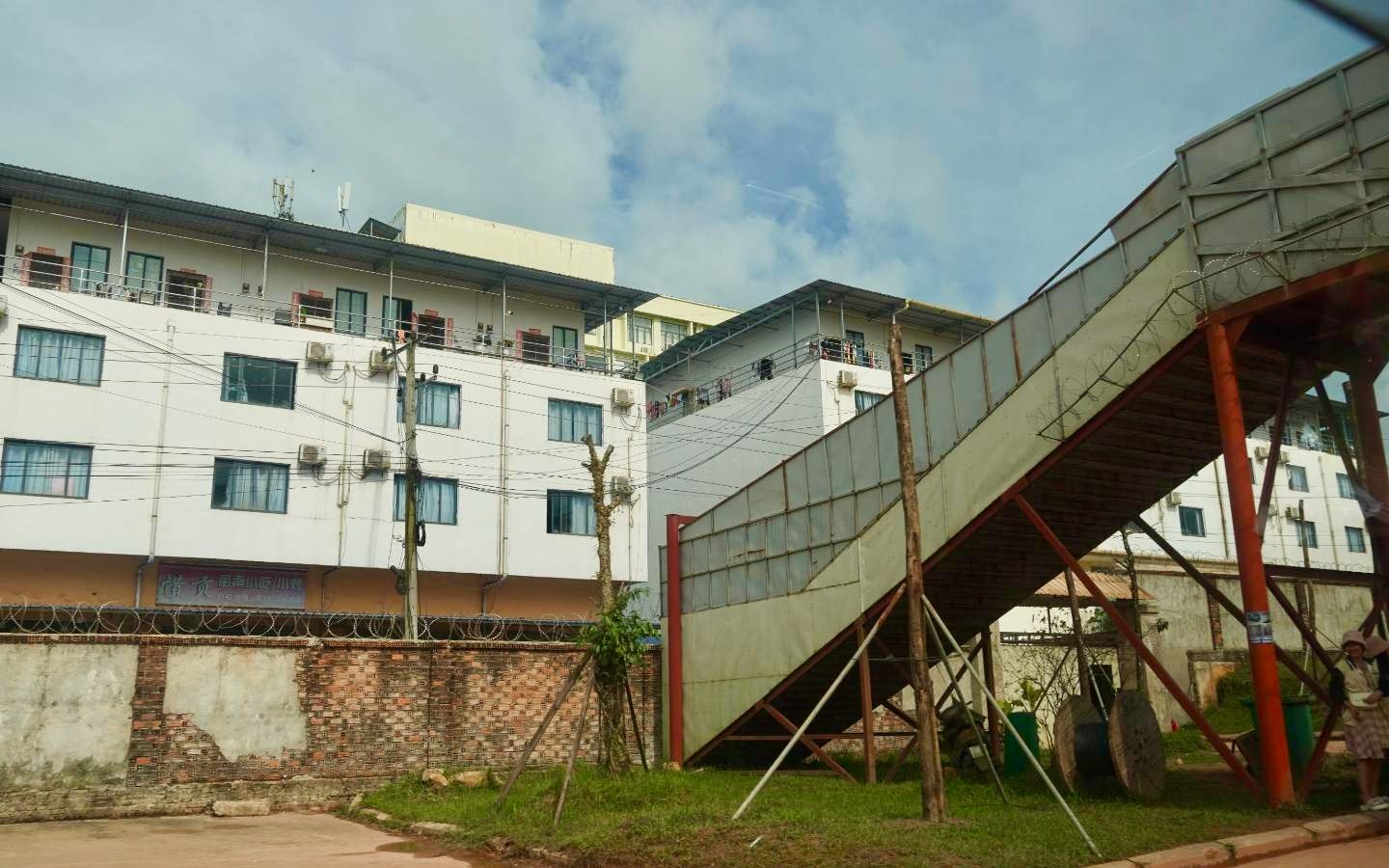THMA DA COMMUNE, Pursat — Rows of shabby worker compounds in the remote Phnom Samkos mountains at the Thai border are still locked up. Large sliding metal panels close off access to more than a dozen of four- to six-story buildings where clothes are hanging out to dry at many windows.
The road outside is quiet in the afternoon, as street vendors explain that as far as they know, the foreign workers inside are not allowed to come out.
The talk of confined workers continues in the tiny border town, but a new notice has been posted on one barbed-wire-topped wall: All foreigners must have valid passports and documentation.
Two months of a police “crackdown” on Cambodia’s scourge of human trafficking — workers tricked into coming to the country, then confined, bought and sold, and forced to work under the threat of violence — have at-times cast the enslavement as a matter of immigration status.
Raids on notorious scam compounds across the country have released thousands of foreign workers from criminal online scam operations, while authorities detailed how many of them didn’t have valid work permits and would therefore be fined.
Interior Minister Sar Kheng spoke in Pursat on Monday about those — and earlier and worse — excuses from law enforcement.
“The police officers, they report, ‘I’ve already made rescues based on two or three or four complaints.’ But in the next sentence they say nothing happened against them,” Kheng recalled. “So how can you say you rescued them?”
“Why couldn’t they leave? And why did they have to file a complaint to authorities?” he continued. “What they say is all illogical and our specialists believe it.”
Over the past year, local police frequently brushed off calls for help because scam operators had contracts with the trafficking victims. In July, Preah Sihanouk provincial police chief Chuon Narin called a trapped victim’s plea for rescue “defamatory,” and said the forced laborers “were working, so this is not confinement.”
Kheng was speaking this week at the appointment of a new governor in Pursat, and pointed out that there were troubles nearby in Thma Da commune — where timber tycoon Try Pheap’s Thmor Da SEZ has become a notorious site of scam operations.
“Do not allow illegal actions in this area to happen and get bigger,” Kheng said. “There was one place that did not allow us to go inside, and later General Neth Savoeun needed to give an order,” he said, referring to the National Police chief.
Kheng said some of the organized crime from Sihanoukville had escaped to the district. “Do not allow them to get bigger,” he said. “Once it mushrooms, it will be difficult.”
“It will be very difficult to investigate when our officials are involved in it, so I call to not be involved with it.”



The interior minister’s words about new arrivals echoed the observations of Thma Da residents on Friday. The dusty town has a narrow road with a single boom barrier as an international crossing. A casino sits atop a hill within sight of the border, and below are the rows of cheap-looking accommodations that make up Pheap’s Thmor Da SEZ.
One driver in the area said that around a month or two ago, buses arrived day and night bringing foreign workers from Sihanoukville. But many of them had already passed through the town to other destinations, he said. An immigration raid had also weeded out workers who didn’t have passports, the driver said.
“It’s quiet, but there are many people inside there,” he said of the SEZ.
A street vendor said she had also seen the wave of arrivals, whom she believed were mostly Chinese. Another vendor said the compound was more locked down than before, and it was hurting her business. “Now they don’t let them come out.”
Additional reporting by Michael Dickison and Tran Techseng












